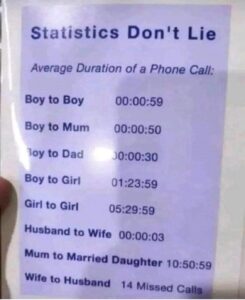Introduction
IQ (intelligence quotient) is often linked in the public imagination to job success, career pathways, and the professions people enter. While intelligence is not the only factor that determines occupational success—personality, social skills, emotional intelligence, and opportunity are also critical—decades of research show that average IQ scores do differ by profession (Deary et al., 2007; Gottfredson, 1997).
This article explores the average IQ of different professions from highest to lowest, what this means for career outcomes, and the implications for mental health and wellbeing.
1. Understanding IQ and professions
IQ tests measure general cognitive ability (g), including reasoning, problem-solving, working memory, and verbal ability. IQ correlates strongly with:
- Educational attainment (Deary et al., 2007).
- Occupational status and income (Strenze, 2007).
- Job performance, especially in complex professions (Schmidt & Hunter, 2004).
Importantly, IQ is an average measure. There is wide variation within any profession, and being “smart” does not guarantee success, happiness, or resilience.
2. Professions with the highest average IQ
Research from occupational psychology and large-scale datasets (Hauser, 2010; Wai, 2013; Deary et al., 2007) suggests that professions requiring advanced education, abstract reasoning, and complex decision-making tend to score highest.
Highest average IQ professions (approx. ranges):
- Professors & researchers (STEM, law, philosophy): Average IQ ~125–135.
- Medical doctors & surgeons: Average IQ ~120–130.
- Engineers, mathematicians, and physical scientists: Average IQ ~120–130.
- Lawyers & judges: Average IQ ~115–125.
Why? These professions demand extensive formal education, high levels of reasoning, and problem-solving under uncertainty. IQ predicts entry and performance, though other traits like grit and conscientiousness also matter (Duckworth et al., 2007).
3. Middle-range professions
Jobs requiring post-secondary education or advanced training but less abstract reasoning typically sit around the 100–115 range.
Examples:
- Teachers (primary/secondary): Average IQ ~105–115 (Rindermann & Ceci, 2009).
- Nurses & allied health professionals: Average IQ ~105–115.
- Business managers, accountants, and analysts: Average IQ ~105–115.
- Skilled technical workers (IT, electricians, technicians): Average IQ ~100–110.
These jobs require both cognitive skill and strong practical, social, and organisational abilities.
4. Professions with below-average IQ
Occupations requiring fewer formal qualifications and relying more on physical labour or routine tasks tend to show average IQs in the 90–100 range.
Examples:
- Clerical workers, retail staff: Average IQ ~95–100.
- Trades with less formal training: Average IQ ~95–100.
- Transport, factory, and manual labour roles: Average IQ ~90–95.
These averages should not be misunderstood as indicators of individual worth. Many people in these jobs excel in practical intelligence, creativity, and interpersonal skills that are not well measured by IQ (Sternberg, 2003).
5. Why IQ differences across professions exist
a) Educational filtering
Professions that require long university pathways (medicine, law, academia) inherently select for individuals with higher IQs, as IQ strongly predicts educational success (Deary et al., 2007).
b) Job complexity
Jobs with high complexity demand more cognitive ability to manage information, solve problems, and adapt to new situations (Gottfredson, 1997).
c) Socioeconomic factors
Access to education and cultural capital also influence who enters high-IQ professions (Hauser, 2010).
6. The mental health angle
- High-IQ professions: Often linked to higher income and status, but also greater stress, perfectionism, and burnout (Shanafelt et al., 2012).
- Middle-IQ professions: Often offer balance between stability and cognitive challenge.
- Lower-IQ professions: May involve greater job insecurity and health risks, impacting mental health (WHO, 2022).
Crucially, job quality and workplace support matter more for wellbeing than IQ alone (OECD, 2014).
7. Limitations and cautions
- IQ ≠ overall ability. Emotional intelligence, creativity, and resilience also drive success (Sternberg, 2003).
- Overlap is large. Many individuals in so-called “lower IQ” professions outperform those in high-IQ roles on other metrics.
- Cultural bias. IQ tests have been criticised for cultural bias and should be interpreted carefully (Nisbett et al., 2012).
FAQs
Q: Which profession has the highest average IQ?
Academics, doctors, engineers, and lawyers typically show the highest average IQs (around 120–130).
Q: Do teachers have high IQs?
Yes. Teachers generally fall in the 105–115 range, above the population average.
Q: Which jobs have average IQ below 100?
Jobs involving routine manual labour, retail, and some clerical roles show averages closer to 90–100.
Q: Is IQ the only thing that matters for jobs?
No. Emotional intelligence, resilience, creativity, and communication skills are equally important for success and mental health
References
- Deary, I.J., Strand, S., Smith, P. & Fernandes, C. (2007) ‘Intelligence and educational achievement’, Intelligence, 35(1), pp.13–21.
- Duckworth, A.L., Peterson, C., Matthews, M.D. & Kelly, D.R. (2007) ‘Grit: perseverance and passion for long-term goals’, Journal of Personality and Social Psychology, 92(6), pp.1087–1101.
- Gottfredson, L.S. (1997) ‘Why g matters: The complexity of everyday life’, Intelligence, 24(1), pp.79–132.
- Hauser, R.M. (2010) ‘Causes and consequences of cognitive functioning across the life course’, Educational Researcher, 39(2), pp.95–108.
- Nisbett, R.E. et al. (2012) ‘Intelligence: new findings and theoretical developments’, American Psychologist, 67(2), pp.130–159.
- OECD (2014) How Good is Your Job? Measuring and Assessing Job Quality. Paris: OECD Publishing.
- Rindermann, H. & Ceci, S.J. (2009) ‘Educational policy and country outcomes in international cognitive competence studies’, Perspectives on Psychological Science, 4(6), pp.551–568.
- Schmidt, F.L. & Hunter, J.E. (2004) ‘General mental ability in the world of work: occupational attainment and job performance’, Journal of Personality and Social Psychology, 86(1), pp.162–173.
- Shanafelt, T.D. et al. (2012) ‘Burnout and satisfaction with work-life balance among US physicians’, Archives of Internal Medicine, 172(18), pp.1377–1385.
- Sternberg, R.J. (2003) Wisdom, Intelligence, and Creativity Synthesized. Cambridge University Press.
- Strenze, T. (2007) ‘Intelligence and socioeconomic success: A meta-analytic review of longitudinal research’, Intelligence, 35(5), pp.401–426.
- Wai, J. (2013) ‘Investigating America’s elite: Cognitive ability, education, and sex differences’, Intelligence, 41(4), pp.203–211.
- WHO (2022) Mental health at work: Policy brief. Geneva: World Health Organization.







